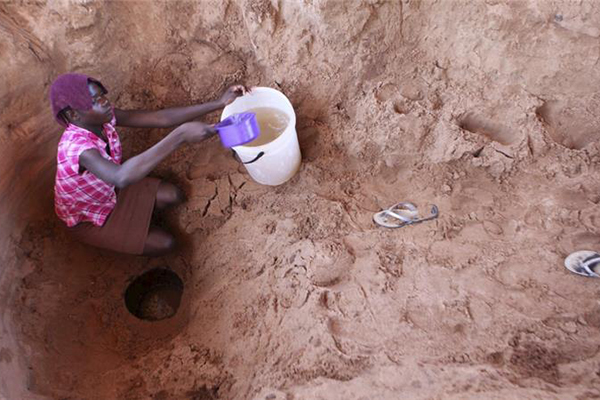
ZIMBABWE is among the seven southern African countries which will share €12 million for mitigation programmes against the effects of El Niño extreme weather phenomenon.
BUSINESS REPORTER
The European Union announced this week that it will contribute €125m to finance emergency actions in countries affected by El Niño in Africa and the Caribbean.
The regional bloc said of the €125m, €12m will go towards assisting the 7,8 million people in Angola, Lesotho, Malawi, Mozambique, Swaziland, Madagascar and Zimbabwe expected to be affected by the phenomenon.
In a statement, the EU said the European Development Fund contributed €119m and from the humanitarian budget €6m that will contribute to the joint effort of bringing life-saving emergency assistance and increasing resilience in the affected countries.
European Commissioner for Humanitarian Aid and Crisis Management, Christos Stylianides, said at the 2015 United Nations Climate Change Conference in Paris (COP21), that the El Niño phenomenon was already affecting millions, especially in Africa, Central America and the Caribbean and is expected to continue to do so in the next months.
“This shows how fragile we are in the face of nature. This is even more visible in regions that are already vulnerable, as they are the ones most affected. The EU is here to help them deal with the consequences of El Niño. Our aid will help meet the urgent needs of the populations, but it will also support resilience efforts, making them better equipped to face natural disasters in the future,” Stylianides said.

- Chamisa under fire over US$120K donation
- Mavhunga puts DeMbare into Chibuku quarterfinals
- Pension funds bet on Cabora Bassa oilfields
- Councils defy govt fire tender directive
Keep Reading
Neven Mimica, Commissioner for International Co-operation and Development said El Nino risks undermined the efforts in poverty alleviation in many countries.
“The aid will help to address immediate needs of nutrition, water and sanitation, health and shelter (for example, support to health structures, provision of food and safe drinking water, supplementary food for pregnant women and children,” said the EU.
“It will also help build resilience in the most exposed countries by enhancing disaster preparedness, early response mechanisms and supporting long-term development solutions.”
The El Niño phenomenon is characterised by rising temperatures of surface sea water, which interact with the atmosphere and cause different extreme events, from floods to droughts. The current El Niño is expected to be the strongest on record, surpassing the 1997/1998 “El Niño of the century”.
It is already affecting large regions of Africa –— Central Africa, Greater Horn of Africa and Southern Africa — with both floods and droughts.
“These are having consequences mainly on food security, but also on health, access to water and hygiene conditions of millions of people living in already vulnerable regions,” said the EU statement.











